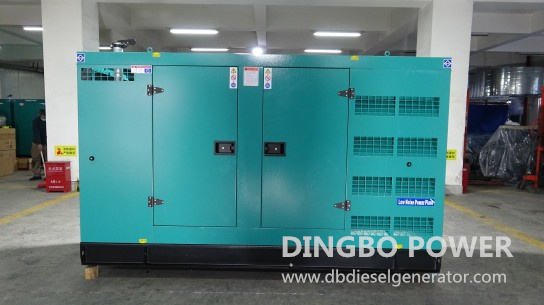Residential diesel generators can keep your home or business running during power outages. However, there are so many sizes and types of standby diesel generator sets available on the market, how to choose the right one that best suits your needs? Take it easy. Here’s a guide which gives the facts and can help you make the right choice.
What is a standby diesel generator for home?
A standby diesel generator is a generator that runs on diesel fuel and provide backup power in the event of a power cut. Paired with an Automatic Transfer Switch (ATS), the generator operates automatically within seconds and maintains essential functions and appliances in your home as soon as your mains power supply cuts out. When the power comes back, the generator will automatically shut down. Usually, standby generators are permanently installed outside your home and connected directly to your electrical panel. They can keep your home and your family safe and provide your peace of mind during a power outage.

How long can you run a standby diesel generator?
In addition to residential areas, standby generators can also be used in commercial and industrial areas. Unlike prime or continuous generators, standby generators are designed to supply power only in emergency situations, such as power outages due to inclement weather or natural disasters. So it’s important to operate your standby generator for the suggested number of hours at one time. Compared to other fuel types of generators, standby diesel generators have a longer runtime. Most of them can work hard 24/7 for extended periods - up to 500 hours (around 3 weeks) if necessary. It’s worth noting that due to limited tank capacity of diesel generators, they need to be refueled timely to provide consistent and reliable electricity. In general, a diesel generator can run continuously for up to 8-12 hours without refueling. It's recommended that you refuel your generator day tank when it reaches about half full.
How to determine which standby diesel power generator is best for your house?
When buying a home standby diesel generator, you need to take into account many factors, including power requirements, fuel storage, fuel efficiency, noise level, price and extra features.
Power requirements
To figure out what size diesel generator will be right for you, you should identify your power requirements by calculating the total wattage of essential appliances and systems you want to power during a power cut. Typically, the easiest way to get the minimum generator capacity requirement for your home is to add up the wattage of all the essential circuits and add 20%.
Fuel tank capacity
Generally, the size of the fuel tank affects the runtime of the diesel generator. A diesel generator with a smaller tank needs to be refueled more frequently to ensure continued power. Diesel generator fuel tanks are available in various types and specifications. You need to know the generator’s fuel consumption rate and the desired run-time to determine the necessary fuel capacity.
You may also like to read: precautions for standby diesel generator fuel tank.
Fuel efficiency
High fuel efficiency is one of the key advantages of diesel generators. But the fuel consumption of different diesel-powered generator models varies. You need to male a comparison before investing in your home standby diesel generator.
Noise Levels
When it comes to generators for home use, noise levels should be a consideration. Diesel generators produce noise when operating, you need to choose a generator with an acceptable noise level for your family and your neighbors. A silent diesel generator will be a good choice if you don’t want to disturb others at night.
Price
Price is also an essential factor to consider when purchasing a generator. You need to balance your budget and your power requirements. Smaller diesel generators are more affordable and they can power essential circuits. If you have insufficient budget for the home backup power solution, a smaller diesel generator will be a good choice.
Extra features:
Based on your needs, you can consider models with add-on features such as automatic starts, multiple outlets, self-diagnostic tests, wheels for mobility on portable models and so on.
In addition to the factors mentioned above, there are also a number of other considerations that you need to take into account when choosing a standby diesel generator for home use, such as brand, warranty and support, emissions, durability, maintenance, etc.
Need help choosing a home standby generator?
Choosing a right standby generator for your needs is a challenging task, you should be in a better position to make a decision. Still unsure which generator is best for your home use? Don’t worry. Keep in mind that you do not have to make these decisions on your own.
Dingbo Power specializes in the design, supply, commissioning and maintenance of diesel generator sets for more than 15 years. We have experts that focus on diesel generator sets, with in-depth industry knowledge to help you choose the right generator that fits your needs. Don’t hesitate to reach out for any further information or assistance regarding to home power generator. Contact us at dingbo@dieselgeneratortech.com, and we will gladly help you.
Comments
Post a Comment